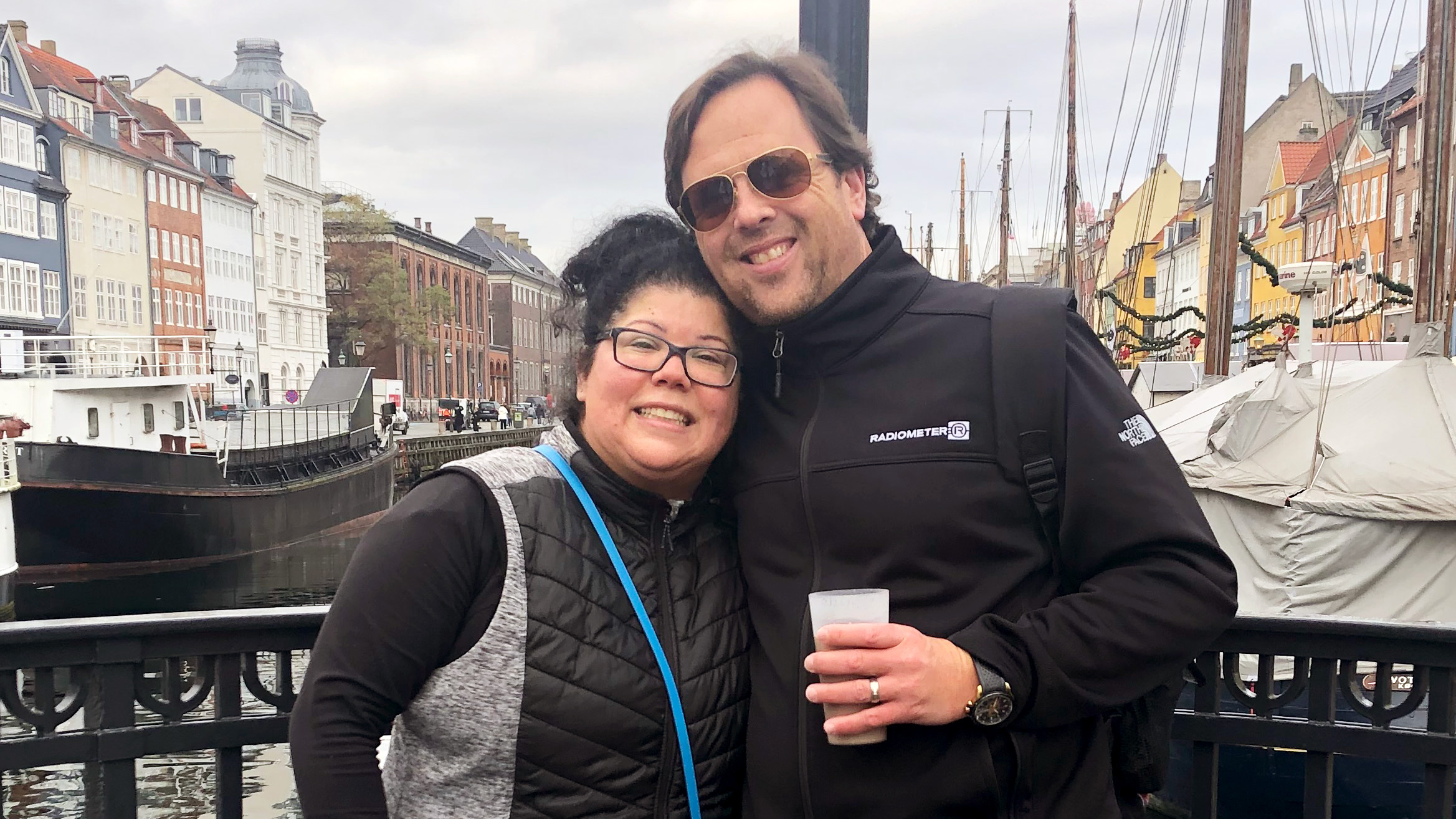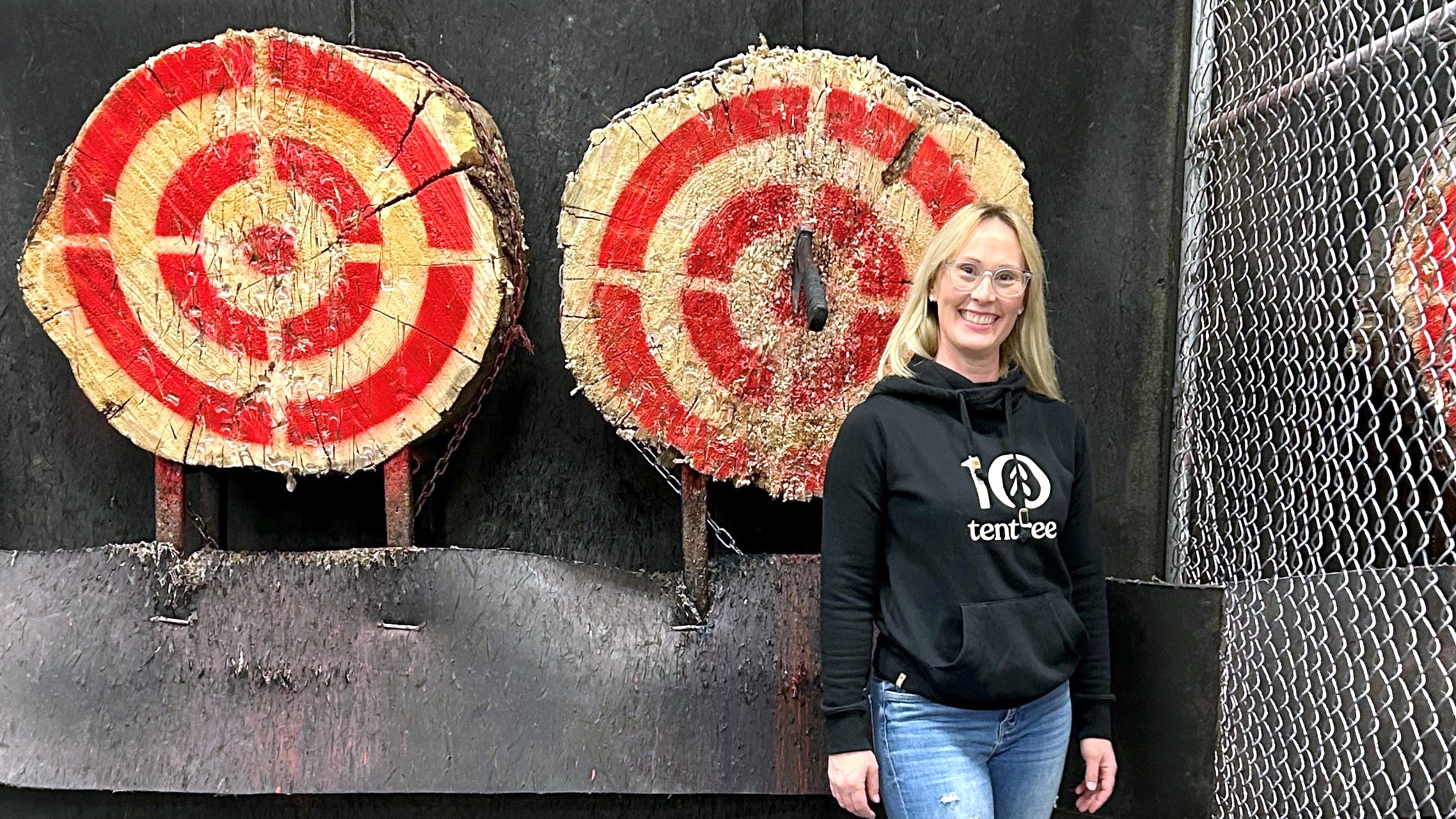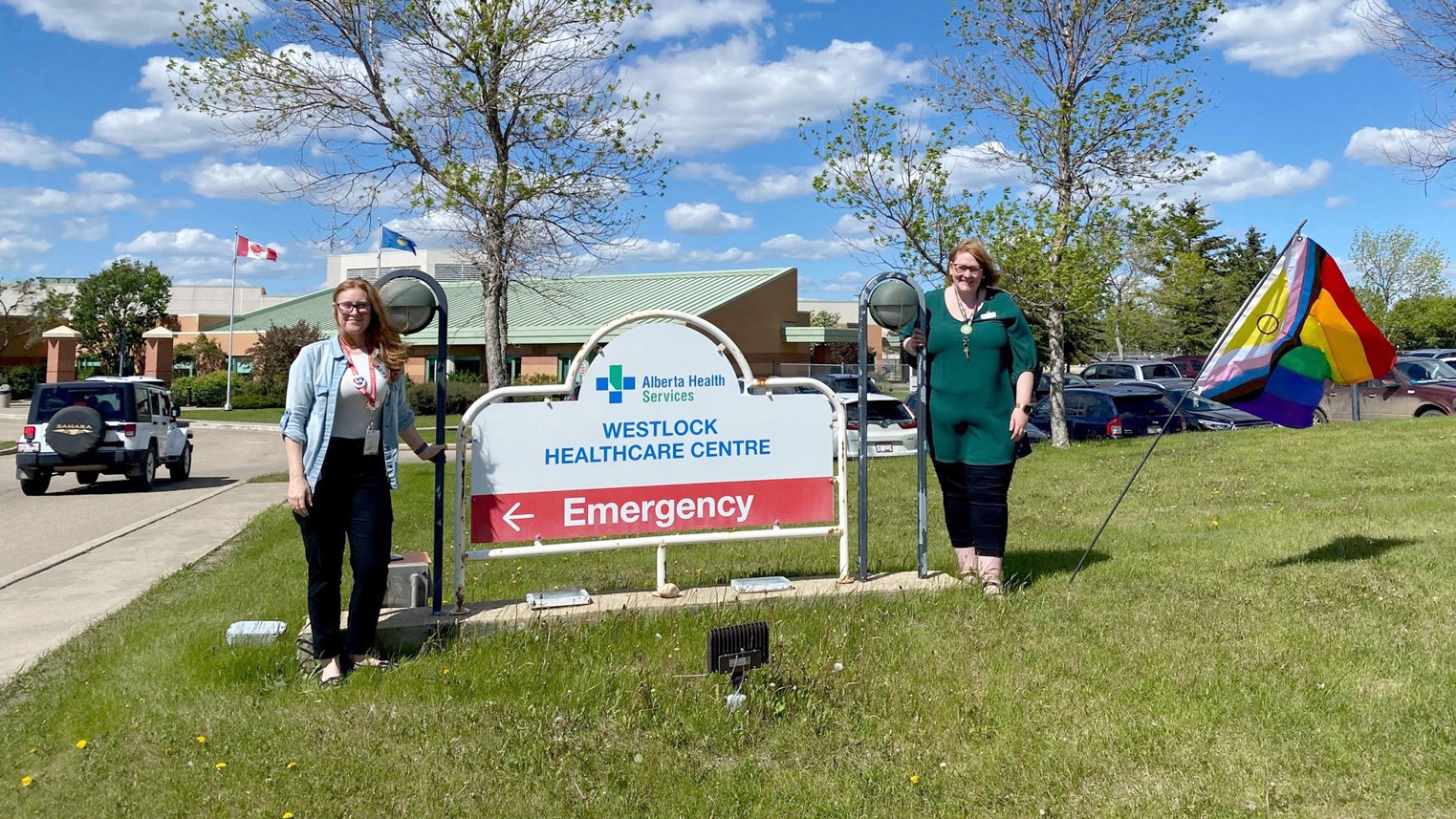
June 21, 2024

Dawn Peta and her husband Mike take a moment to enjoy some Copenhagen sightseeing during a trip to Denmark. Peta is a clinical nurse educator for South Zone. Photo supplied.

Jody Lutz, provincial rural nursing education coordinator, has been known to hurl an axe or two for recreation. Photo supplied.

Meagan McCoy-McLevin, left, site manager, and Jackie Williams, acute care manager, pose by Westlock Healthcare Centre. Photo supplied.
Story by Gregory Kennedy & Janine Poersch
Rural nursing calls for versatility and confidence — vital ingredients for success that spring naturally from education and experience — and new educational opportunities being offered by Alberta Health Services (AHS) are helping them to wear their many hats better than ever in delivering the best care.
For these nurses, swiftly switching gears to competently treat patients across multiple practice settings — including emergency, labour and delivery, medicine and surgery — is all in a day’s work.
Launched in fall 2022 under the umbrella of Clinical Transition Education, the program grew with the support of the Rural Capacity Investment Fund (RCIF), and today serves up specialized educational opportunities tailored to their unique rural needs.
These include popular ‘bread and butter’ courses such as Foundations in Emergency Rural Nursing (FERN) and Leadership Essentials in Rural Nursing (LERN). To date, nearly 1,000 rural nurses have benefited across 77 sites provincewide through blended virtual and hands-on learning.
“Prior to this program, most rural sites didn’t offer an orientation period. You’d come to work in emergency for the first time, only to be told, ‘Here are your five buddy shifts, and then you’re on your own’,” says Jody Lutz, a provincial nursing education coordinator who works out of Tofield Health Centre in her hometown.
“The FERN course — with an eight-day orientation for those who are new to emergency departments —now provides a standardized base of the kind of foundational knowledge that's required to work in any ED in Alberta. If I’m working in Beaverlodge, for example, and move to Taber, all of my orientation translates — so it's wonderful that way.” Leadership Essentials in Rural Nursing (LERN), is a three-day course which aims to empower nurses in leadership roles with clinical leadership skills.
“With the crunch with healthcare right now, not only are there nurses who are new to rural, they might be brand-new to nursing, too, but they're also being asked to take on a charge nurse role,” adds Lutz. “It’s been a huge plus to be able to provide them with orientation to build their clinical leadership competencies through our blended learning format.
“We offer a lot of scenario-based learning with practical examples of what might happen on their unit. We give them what they need right to be able to practise efficiently. One of the first scenarios that we do, for example, in our charge nurse training is to ask them to do a patient assignment — to decide which nurses are going to be assigned to which patients. This is a very complex task.
“We have our nurses break out into little rooms. We give them a list of patients, their medical histories and a little report about what’s been happening with each one. They go through this information, they assign nurses — and then we ask them why they assigned this nurse to that patient, and so on. It can be really intimidating for sure, so we give them tools.”
Other educational offerings include:
Dawn Peta, a clinical nurse educator for South Zone — who’s sent nurses to both LERN and FERN — brings knowledge to sites including Bow Island, Taber, Milk River, Cardston, Raymond, Fort MacLeod, Pincher Creek and Crowsnest Pass — along with 30 years of nursing experience.
“When you're working in rural, you have a lot more autonomy, and you might not have your manager around all the time,” says Peta. “Our course helps nurses build their confidence and gives them the resources and tools to be able to work successfully in an emergency department.
“Now that education has improved immensely, I can also tell you that retention has improved. Before the new program, staff were having to rely on themselves and their own ability to complete online modules, often on their own time. And they didn’t have access to an educator when they had questions in real time. That’s all changed for the better. We’ve heard lots of great feedback from our students.”
In Westlock, retention is also on the upswing, with credit going to the increased educational opportunities.
“We get a lot of nursing grads applying to get their foot in the door of AHS,” says Jackie Williams, acute care manager for emergency and the west wing at Westlock Healthcare Centre. “Our proximity to the city (Edmonton) has seen a lot of people commuting.
“With staffing levels the way they are in rural sites, a lot of the times you’ll be called on into situations that, in bigger hospitals, you probably wouldn't be the one called upon for the first five or six years of your career. Yet here, in rural, it’s kind of a sink-or-swim environment — and you're sometimes pulled into situations that you’re maybe not trained for, or comfortable with.
“Now, the FERN course is giving our staff the confidence to be pulled into these situations, knowing that they have the knowledge and background. They feel more supported. It allows us to attract and to keep staff. Prior to this, you'd have a new grad apply here, and then take a job in the city at the first opportunity.”
Meagan McCoy-McLevin, site manager in Westlock, adds: “This two-week foundational course has been a real help to our site to retain and recruit staff. It supports patient safety, as well, which is our number-one priority.”
Thanks to rural nursing education, “we know our nurses are all having the same education, and that it’s up-do-date,” adds Lauren Randall, clinical nurse educator for Canmore General Hospital.
“It also helps us tailor our orientation around what they have learned. Everybody comes with different experience, so this training enables us to have a standard of practice and knowledge for each staff member on starting with us.”
Sara Philips, clinical nurse educator for Strathmore District Health Services, served on the working groups that developed both FERN and LERN.
“When you have one person orientating multiple times a year, it becomes difficult to give the same content of education to each. Foundations in Emergency Rural Nursing has allowed for everyone to get the same content — not only for each specific site, but across the entire province. I’ve really enjoyed teaching stations for FERN.”
Giving rural nurses equal educational opportunities also means they can enjoy the careers they want, wherever where they want, often in places of the heart, where the lifestyle suits them better.
“Working in rural is just a real privilege,” says McCoy-McLevin, who moved away from the city back to her home community to raise her family. “We get to be here for all the moments of our local people's lives, from delivering babies to all the way throughout their lives. It is a real honour.”
As Lutz puts it: “My passion, my heart, is in rural nursing. I'm a small-town Alberta girl, born and raised.”